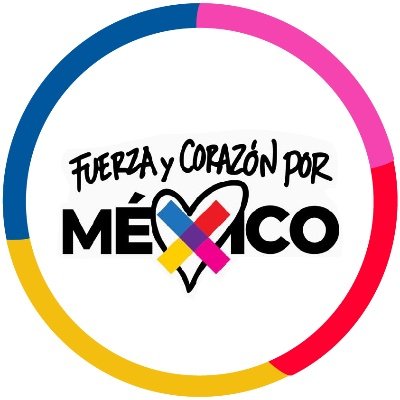By George Ingram, John McArthur
Amid a growing body of research on the effects of cash transfers (e.g., see recent summaries here, here, and here), greater attention is needed to flesh out what roles cash can or should play in ending extreme poverty. In emergency humanitarian contexts, by contrast, the intellectual dam broke open years ago on the merits of quick cash disbursements to support acute human needs—even if implementation remains gradual. (Note we use the term “cash” here as shorthand for various methods of direct transfers to individuals or households, whether through the form of actual cash, debit cards, or digital payments.) But in the broader context of development and poverty reduction, cash debates remain active and the corresponding dam has only shown cracks, without yet signs of breaking open toward new consensus in any particular direction.
To delve into the topic, we recently hosted a Brookings roundtable comprised of participants from academia, philanthropy, business, government, multilateral organizations, and non-governmental organizations. The aim was to discuss the state of cash transfer evidence and implementation in the context of the objective to end extreme poverty by 2030, as affirmed in the World Bank’s own headline institutional goal and by all United Nations member states in the first Sustainable Development Goal.
The increasingly specific geographic nature of extreme poverty helps to focus the practical questions at hand. For example, recent estimates suggest that five countries—Nigeria, DRC, Madagascar, South Sudan, and Mozambique—are on course to be home to more than half the world’s extremely poor people by 2030. If cash transfers are to play a role in ending extreme poverty, then these contexts—which are themselves very diverse—deserve special emphasis in advancing the relevant research and implementation priorities. Importantly, these countries are also grappling with problems of political and institutional fragility, so the practical lines may blur when it comes to development “versus” humanitarian strategies in the final frontiers of extreme poverty.
One short session was not enough to cover all the issues, but it did provide a notable consensus on the need to bolster discussions of why, when, and how cash transfers should be delivered to help end extreme poverty.
WHY
Even ardent promoters of cash transfers are clear in articulating that cash is not a panacea for development, nor a simple substitute for key actions across the development ecosystem. Cash grants to individuals will not, for example, generate essential public goods like roads, hospitals, vaccination programs, and municipal water systems. Nor will they train nurses, teachers, or other long-term skilled workers essential to promote development.
Nonetheless, there are many reasons why cash transfers can be a worthwhile policy tool. For example:
- Cash empowers individual recipients as decisionmakers. In this respect, cash promotes a rights-based approach to development. It prioritizes beneficiaries’ preferences, latent or otherwise, over those of government or development agencies, without needing to deploy intrusive or complex surveys and interviews.
- Cash offers efficiency. It avoids the heavy human and physical infrastructures of delivering services and commodities. There is no complicated procurement of goods and services or lengthy supply chain to manage. Cash can reach the intended recipient quickly and avoids the intermediaries that can siphon off value.
- Cash can help build and reinforce safety nets. Similar administrative infrastructures are required for both: a cash infrastructure can help build a broader safety net system, and a safety net infrastructure can be used to deliver cash in emergencies and build resilience to shocks.
- Cash can boost assets and incomes—both for recipients and for vendors who are serving recipients in the local marketplace.
- Cash can help boost non-monetary outcomes. For instance, cash has been used to boost a range of health and education outcomes, the empowerment of women and girls, and even the avoidance of early marriage.
WHEN
There is increasing agreement in identifying when the relevant preconditions are in place for cash transfers. Multiple ingredients are essential. First, even if cash is handed out as physical currency or debit cards, this still requires local staff and logistical infrastructure for targeting, verification, and monitoring purposes. Once cards are in place they can be readily replenished. Second, transfer systems simply require adequate financing, either through domestic public revenues or international contributions.
Third, a sound financial ecosystem is needed to support transfers and deposits, especially for mobile money. The rapid diffusion of mobile telephony, in even the poorest parts of the world, offers unprecedented opportunities to reach physically disparate communities at very low cost. But doing so requires modern financial regulatory structures and appropriate technical alignment between banking and telecom sectors, alongside appropriate safeguards for consumers.
Cash can be appropriate in situations where it is physically difficult to reach the poorest and those in need, including fragile environments and in states wracked by conflict. Food convoys may not be able to get through a violence-affected region, but if the target population has cell phones or debit cards, and there is adequate market infrastructure, cash can be sent instantaneously so that people can buy food. In this respect, cash can help mitigate particular consumption constraints, such as insufficient income to purchase essential goods and services. But it is not necessarily sufficient to overcome specific problems or imperfections in a market itself, ranging from physical hurdles in supply chains to information gaps or underlying capital constraints.
HOW
Successful cash transfer programs are nothing like the proverbial helicopter drops of money from the sky. But there is still huge scope for research and debate on how best to deliver them. In practical terms, cash can be delivered on its own, as cash-only; as cash-plus-intervention (like grants alongside training programs); or as cash-upon-conditions (like family grants in return for children attending school).
In urgent humanitarian situations where a basic market ecosystem still functions, there is widespread support for cash-only as an immediate way to support basic consumption needs, even if not services like health and education. At the other end of the spectrum, in non-humanitarian situations, there is no clear consensus. Nor is there enough knowledge on the optimal composition and timing of actual transfers. When, for example, is a transfer’s arrival most helpful for a household, and how might transfers be spread over distinct time horizons to achieve various ends?
Another central debate hinges on targeting versus universality: Should cash be prioritized for specific populations or groups living below the line of extreme poverty, or should it be delivered to all citizens in countries with extreme poverty? Part of the issue here hinges on tradeoffs among the budgetary costs of widespread access and the administrative costs of targeting people in need. Much of the issue also hinges on the politics of social protection and social change. Policymakers need to make their own judgments regarding the roll-out of new policies and which sequence of actions might generate public support as opposed to resentment.
CONCLUDING THOUGHTS
If the world is to succeed in ending extreme poverty by 2030, there is a good chance that cash transfers will play a role in the final stretch. In fact, there will likely be many final stretches spanning diverse contexts, where different forms of transfers could help tackle different forms of local constraints. At a minimum, cash and other interventions should be held to the same standards: what are the impacts, over what time periods, for which populations, and at what cost?
With only 12 years to the deadline, there is urgency for expanded and large-scale experimentation to advance the many underlying debates—the why, when, how, and even where of the diverse cash transfer toolkit. Leading multilateral institutions like the World Bank and the United Nations system can play a pivotal role in guiding these efforts. In doing so, these organizations can help spearhead collective global efforts in delivering on their own headline objectives.
This content was originally published here.
VOTA PARA EVITAR LA DICTADURA
SALVA Al EDOMEX, UNIDOS SOMOS MAYORÍA
TENEMOS SOLO UNA OPORTUNIDAD
EL 4 DE JUNIO DEL 2023 VOTA PARA MANTENER
TU LIBERTAD, LA DEMOCRACIA Y EL RESPETO A LA CONSTITUCIÓN.
SI NO VOTAS PROBABLEMENTE TU VOTO NO VOLVERÁ A CONTAR
UBICA TU CASILLA AQUÍ
EL 2 DE JUNIO DEL 2024 VOTA PARA MANTENER
TU LIBERTAD, LA DEMOCRACIA Y EL RESPETO A LA CONSTITUCIÓN.
VOTA POR XÓCHITL








